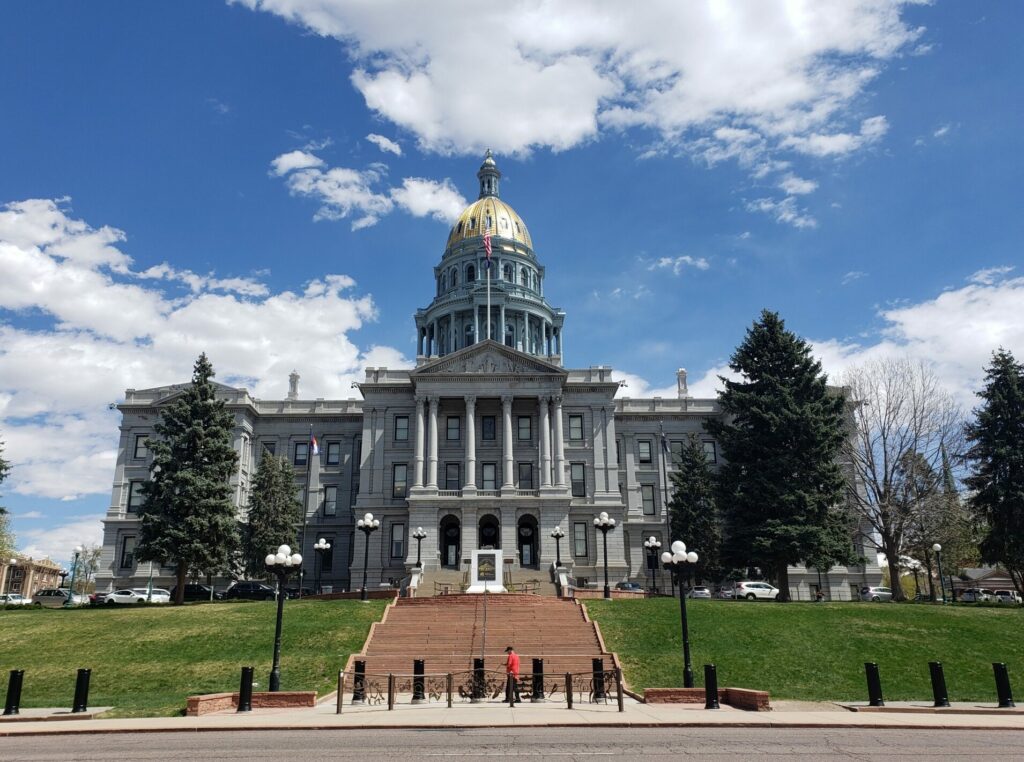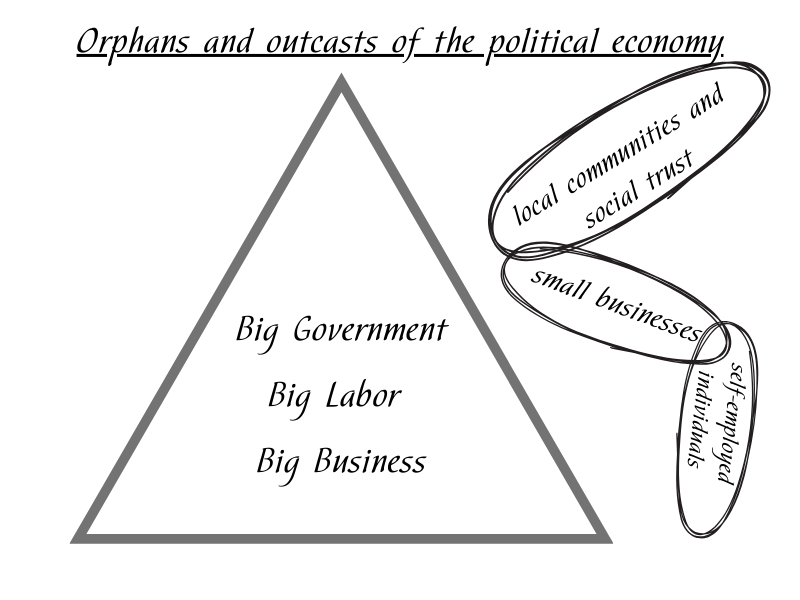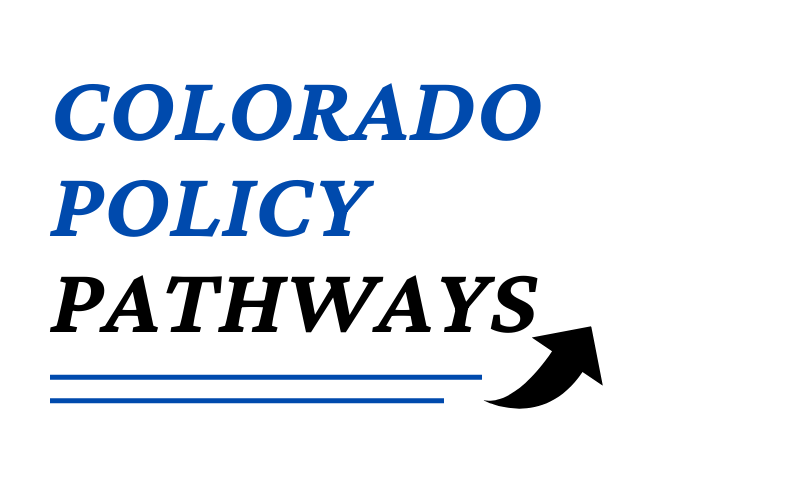Table of Contents[Hide][Show]
Colorado Policy Pathways is a work in progress. This embodies what is critical to protect: the freedom to figure things out.
In many ways, it is a project of inquiry and a reminder that the longer you work with a problem, especially with complex systems involving people, the more doubtful it is that government solutions exist. And yet, we keep trying.
This blog is intended to share what I see.
Over time, it has become clear that Labor and Employment Laws consume too many resources just for compliance. They transform employees into burdens and risks to avoid when they should be resources and partners for opportunity and growth. Yet we keep adding new laws, digging deeper into a daily reality full of confusing, tangled legal language. This is a battlefield that consumes individuals as employees as well. Few fully understand the rights that laws have given them or the real consequences of exercising them.
Laws should support multiple pathways not just one.
The more options we have, the more prepared we are to adapt when conditions change. Often laws are passed to meet the moment but then become restrictive or wasteful. It is hard to reverse or reform them because there is always someone who wants that protection or benefit.
Colorado Policy Pathways is more closely focused on supporting options and agility for employers and individuals in the workforce. Closer scrutiny of sprawling Labor and Employment laws is well overdue.
People try to figure out, How will I earn income? How will I support a family? What does success look like to me? Yet the very laws meant to protect us have limited discovery.
Legal mandates ignore the fact that everyone has different aspirations and life experiences. These do a great disservice to the general public. As conditions change, we face a bucket of challenges but also opportunities if we are free to pursue what works for us.
What limited pathways look like over time
Government laws can provide the best environment for individual decision-making or it can get in the way.
One example is politically motivated regulations that are making it a default that we earn W-2 income as employees. Outside of employment, there are options such as starting a small business as an employer or as an individual providing products and services. Starting a small business today is a big commitment and full of risks, but laws are also making it harder to choose self-employment. This option has enormous potential when coupled with advancing technology. If we suppress self-employment, we fortify a rigid legal infrastructure that tolerates only an employer/employee economy, taking so much opportunity off the table.
We risk losing the small-scale, less formal, and more agile workplace.
Mandates that don’t fit the realities of operating a small business are making them fragile. We can’t forget that every big business was once a small one. There is much in commerce and society that only large firms can do and there is much that only small firms can do. We need them all.
These businesses should have options to adapt within their market or sector. Our world speeds far beyond our ability to see what is coming next, making it crucial we can adapt quickly.
Patterns
As I follow all the various stages of policy, from deliberating a law to rulemaking and then implementation and enforcement, I see patterns. Some laws in Colorado are heavily influenced by model legislation that political interests promote state-by-state.
Occasionally, Colorado is the front-runner. Media then proclaims the Governor as the leader who delivered what was a “first in the nation” law. It promises to make a bold improvement to the lives of its residents. That Colorado law then becomes the template for other blue states to copy and paste from.
Finding out what is really going on is a long process.
These policy insights are revealing but always lead to even more questions and then conversations with those who know much more than I do. Many agree that labor and employment laws, financial regulations, and more are expensive to comply with, and few have confidence that it is even possible to be in compliance. Small employers are hopelessly behind the curve and vulnerable.
You shouldn’t need a law degree to start a small business or build income by choosing self-employment. More troubling, there is a yawning gap between the intricate laws on the books and the capacity of the government to enforce them. This should cause all of us alarm.
On adding Labor relations
I had already seen the influence of unions on employment laws. But today, something else is going on. Colorado has enjoyed a long streak of relative labor peace. However, COVID and inflation, much of it influenced by the compounding of poor policy, have added societal stress, which has provided the Labor Movement with opportunities.
Labor interests are still expanding employment laws and benefits, which then become permanent challenges for commerce and the economy. But they are shifting to sector-by-sector legislative strategies to target certain industries. Unions are trying to revive membership after years of decline, but their strategies conflict with the welfare of both workers and their lives as consumers in surprising ways.
Politics builds interest groups. Does the process invite the public?
The world of policymaking is increasingly isolated from the everyday world of the general public. As a result, media is often the only way for people to be aware of how new laws might impact their lives.
A political economy of various interests thrives inside these walls.

So noble and serene – on the outside.
A recent visit to Colorado’s Capitol in Denver – midday when all was quiet on the outside, concealing all that was unfolding inside.
To give credit where credit is due, the tools to follow what is going on and to participate remotely have grown. They are still underutilized. Following the process can be tedious. It requires patience, time, and expertise. While it is meant to support transparency, the reality is that confidential proceedings will never go away, even with the best of intentions.
A wiser way forward is to reduce the number and scope of bills. Among the advantages, this would discourage a rushed and undisciplined process that is vulnerable to antics. People deserve government policies that are well-thought-out and carefully deliberated. When complexity conceals so much from the voting public, they have no way of knowing.
When some interests dominate, even if unintentionally, they orphan smaller voices.
Small businesses and the self-employed are important to social trust and community because of how closely they engage in our daily lives person to person.

There is a lot to say about this, one article at a time.
There are important questions about the labor movement, including if it orphans the workers in the general public it claims to defend.
Moving forward
The original purpose of Colorado Policy Pathways remains the same as where it started.
It defends the conditions that allow us to “figure stuff out.”
Among today’s growing threats are to the small business workplace, the individual who chooses to be self-employed, and the small independent business owner (or family) who may have invested personal resources and advanced through years of dedication and hardship only to have the rules changed with the whims of politics, leaving them with heavy losses and disappointment.
This one post lays down a lot of topics and more sit on the side, cut out for later. Sharing the details of a bill, the messy implementation, and the broken process of evaluating success while also threading that with broader insights sounds like a wonderful goal. What each looks like will be fluid. That’s because no one topic stands alone.
It always comes down to people.
Trust underlies everything in these topics. We underestimate the possibility underlying human connection. The smallest social community is you and I.* Relationships are hard but a lifeline to opportunity when we get them right.
*The Courage to be Disliked, by Ichiro Kishimi, Fumitake Koga


 Where will Colorado land when its transition slows?
Where will Colorado land when its transition slows?